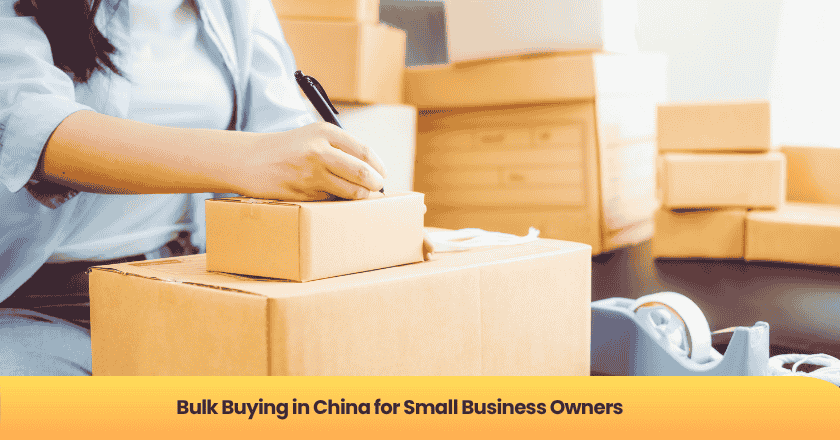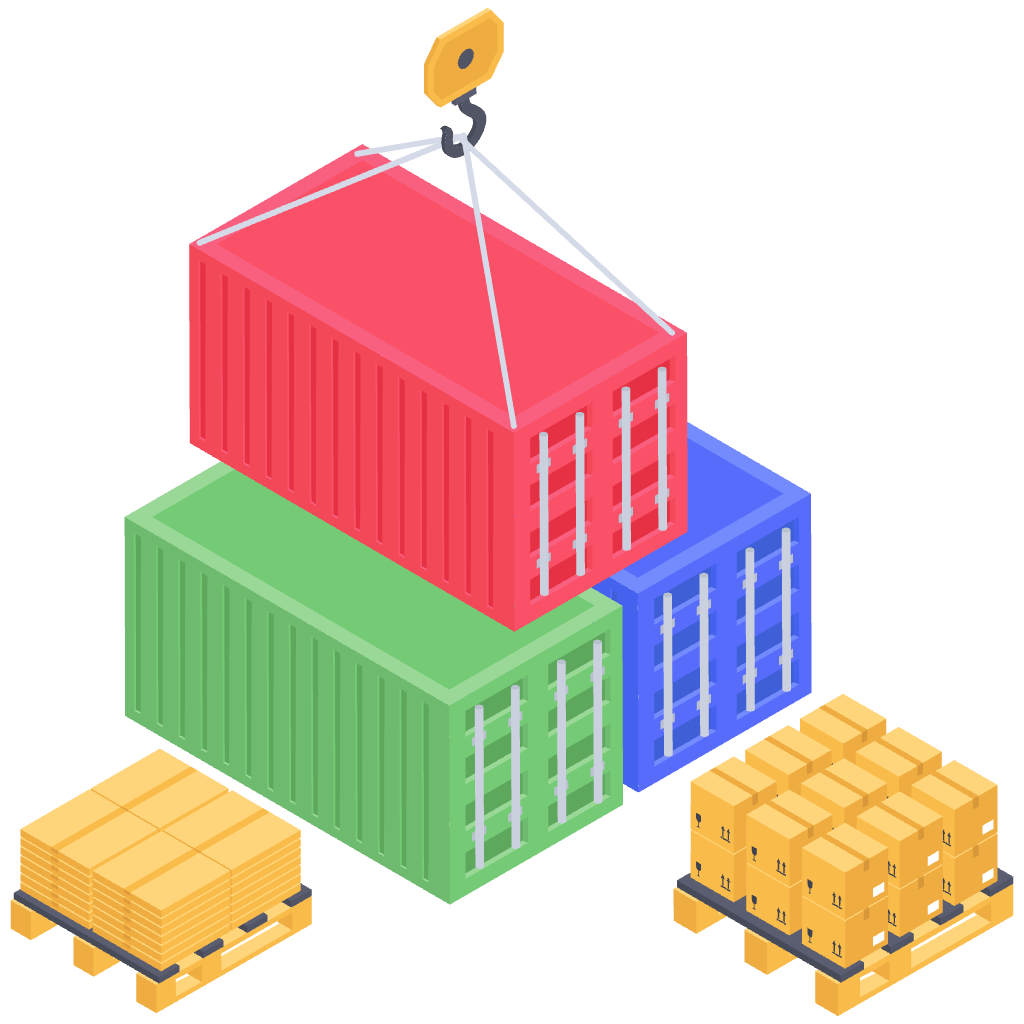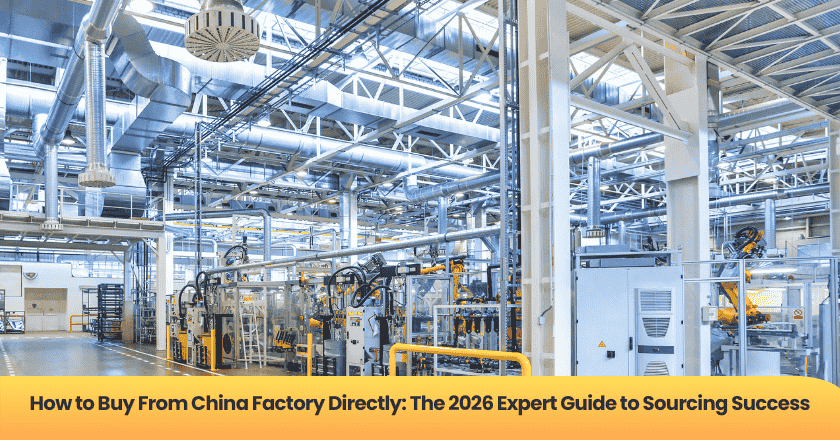
I see bulk buying in China as a powerful strategy for small business owners. When I purchase large quantities directly from manufacturers, I access lower prices and a wider range of products. This approach helps me stay competitive in my market. However, I know that finding trustworthy suppliers and managing quality can create challenges. Careful research and strong communication remain essential to ensure a successful sourcing experience.
Key Takeaways
- Bulk buying from China can significantly lower costs, allowing small business owners to increase profit margins and stay competitive.
- Finding reliable suppliers is crucial. Research, request samples, and communicate clearly to ensure quality and avoid costly mistakes.
- Negotiating prices and terms can lead to better deals. Always compare quotes and document agreements to prevent misunderstandings.
- Managing logistics and understanding import regulations are essential for a smooth purchasing process. Stay organized and keep detailed records.
Bulk buying in China explained
What is bulk buying in China
When I talk about bulk buying in China, I refer to purchasing large quantities of products directly from manufacturers or wholesalers based in China. This process allows me to access lower unit prices and a broader selection of goods. I often see businesses order hundreds or thousands of items at once, which helps them secure better deals. Bulk buying in China involves several steps, including researching suppliers, comparing product options, and negotiating terms. I find that this approach works best when I need consistent inventory and want to minimize costs.
Tip: I always check the minimum order quantity before starting bulk buying in China. This helps me plan my budget and avoid surprises.
I use bulk buying in China to source products across many categories, such as electronics, clothing, and home goods. The process requires me to evaluate supplier reliability and product quality. I also pay attention to shipping logistics and import regulations. When I manage these factors well, I can build a strong supply chain for my business.
Why small businesses buy bulk from China
I choose to buy bulk from China because it offers several advantages for my small business. The most important benefit is cost savings. Chinese manufacturers often provide competitive prices due to large-scale production and lower labor costs. I can increase my profit margins by reducing the cost per unit.
I also value the wide variety of products available when I engage in bulk buying in China. Suppliers offer everything from basic commodities to innovative new items. This diversity allows me to expand my product line and respond quickly to market trends.
Here are the main reasons I prefer bulk buying in China:
- Lower Costs: I save money on each item, which helps me stay competitive.
- Product Variety: I access a huge range of products, making it easier to meet customer needs.
- Scalability: I can grow my business by increasing order sizes as demand rises.
- Customization: Many suppliers allow me to customize products with my own branding or specifications.
Bulk buying in China helps me manage inventory efficiently and reduce the risk of stockouts. I can plan ahead and ensure I always have enough products to meet customer demand. When I buy bulk from China, I also gain access to new trends and innovative products before they reach other markets.
Bulk buying process
Finding reliable suppliers
When I start bulk purchasing, I focus on finding reliable suppliers. I search online marketplaces, attend trade shows, and ask for referrals from other business owners. I check supplier credentials and look for reviews from previous buyers. I request product samples to evaluate quality before making any commitments. I always communicate directly with suppliers to clarify expectations and confirm their ability to deliver large orders. This step helps me avoid costly mistakes and ensures my purchasing process runs smoothly.
Tip: I create a checklist for supplier evaluation. I include criteria such as production capacity, communication skills, and past performance.
Negotiating prices
Once I identify potential suppliers, I begin negotiating prices. I compare quotes from several sources to understand the market rate. I discuss payment terms, discounts for bulk orders, and possible customization options. I use clear language and document all agreements to prevent misunderstandings. I find that suppliers often offer better deals when I commit to regular bulk purchases. I always remain respectful but firm during negotiations to secure the best value for my business.
Placing bulk orders
After finalizing the price and terms, I place my bulk order. I confirm product specifications, quantities, and delivery timelines in writing. I double-check the order details to avoid errors. I ask for a proforma invoice and review it carefully before making any payments. I maintain open communication with the supplier throughout the process to track production progress. This step ensures my purchasing experience remains organized and efficient.
Payment and shipping
I choose secure payment methods to protect my investment. I often use wire transfers, letters of credit, or trusted payment platforms. I confirm payment schedules and keep records of all transactions. I coordinate shipping arrangements with the supplier, selecting the most cost-effective and reliable options. I track shipments and request updates to avoid delays. I prepare for possible customs inspections and ensure all paperwork is complete.
Note: I always insure my shipments to safeguard against loss or damage during transit.
Importing from China
Importing from China requires careful planning. I research import regulations and tariffs for my country. I prepare all necessary documents, including commercial invoices, packing lists, and certificates of origin. I work with customs brokers to streamline the clearance process. I monitor shipment status and respond quickly to any issues. I keep detailed records of each import transaction to stay compliant with local laws.
I find that bulk purchasing from China becomes easier with experience. I learn from each order and refine my process to improve efficiency and reduce risks. I stay updated on changes in import regulations to avoid unexpected costs.
Benefits of bulk purchasing
Cost savings
When I buy products in bulk, I notice a significant reduction in my expenses. Suppliers often offer lower prices per unit when I commit to larger orders. This strategy allows me to increase my profit margins and reinvest in my business. I track my spending closely and see how bulk purchasing helps me control costs. I also avoid frequent shipping fees by consolidating orders. This approach gives me a clear advantage in a competitive market.
Tip: I always compare bulk pricing with smaller orders to see the real impact on my bottom line.
Product variety
Bulk buying opens up a wide range of options for my business. I can choose from thousands of products across different categories. Suppliers in major manufacturing hubs provide access to the latest trends and innovations. I often discover new items that appeal to my customers. By ordering in bulk, I can test different products and expand my offerings. This flexibility helps me respond quickly to changes in demand.
- I select products based on customer feedback.
- I rotate inventory to keep my selection fresh.
- I explore new suppliers for unique items.
Scalability
Bulk purchasing supports the growth of my business. As my sales increase, I adjust my order sizes to match demand. I build strong relationships with suppliers by placing regular bulk orders. This consistency helps me negotiate better terms and secure reliable delivery schedules. I manage inventory more efficiently and reduce the risk of running out of stock. Scalability gives me the confidence to pursue new markets and expand my reach.
Risks and challenges
Quality control
I always pay close attention to quality control when I buy in bulk from China. I know that inconsistent product quality can hurt my business and damage my reputation. I request product samples before placing large orders. I also set clear standards for materials, packaging, and performance. I work with third-party inspection services to check goods before shipment. This step helps me catch problems early and avoid costly returns.
Tip: I keep detailed records of all quality checks. This helps me resolve disputes with suppliers if issues arise.
Communication barriers
I often face communication barriers when I work with overseas suppliers. Language differences can lead to misunderstandings about product specifications or delivery schedules. I use simple, clear language in all my messages. I confirm important details in writing. Sometimes, I use translation tools or hire interpreters for complex negotiations. I find that regular updates and quick responses help build trust and prevent confusion.
Logistics issues
Shipping products from China involves many steps. I must coordinate with suppliers, freight forwarders, and customs agents. Delays can happen due to weather, port congestion, or paperwork errors. I track my shipments closely and stay in touch with all parties involved. I choose reliable shipping partners and insure my goods to protect against loss or damage. I plan for extra time in case of unexpected delays.
Legal considerations
I always research the legal requirements for importing goods into my country. I check for product certifications, safety standards, and labeling rules. I make sure my contracts with suppliers are clear and cover important terms like payment, delivery, and dispute resolution. I consult with legal experts if I have questions about compliance. Staying informed about regulations helps me avoid fines and shipment delays.
Tips for bulk purchasing
I always begin by researching the products I want to source. I set clear goals for my bulk buying project. I identify the target market and estimate demand. I prepare a checklist that includes product specifications, desired quantities, and budget limits. I gather information about suppliers and review their track records. I use online platforms and industry contacts to find reliable sources. I make sure to understand the minimum order requirements before moving forward.
Tip: I create a spreadsheet to track supplier details, quotes, and communication history. This helps me stay organized and make informed decisions.
Best practices
I focus on building strong relationships with suppliers. I communicate my expectations clearly and confirm all details in writing. I request product samples to verify quality before placing large orders. I negotiate payment terms that support my cash flow. I monitor production timelines and stay in touch with suppliers throughout the process. I use technology to track shipments and manage inventory efficiently.
- I always double-check order confirmations.
- I schedule regular updates with suppliers.
- I review market trends to adjust my sourcing strategy.
Common mistakes
I have learned to avoid several pitfalls in bulk purchasing. I never skip the sample review stage. I do not rely on verbal agreements. I avoid making large payments upfront without proper documentation. I pay attention to import regulations and ensure all paperwork is complete. I do not ignore quality control checks, even for repeat orders.
How NewbuyingAgent helps
I rely on NewbuyingAgent to simplify bulk purchasing. I benefit from end-to-end management, including price negotiation, quality control, and logistics support. I receive regular updates on order status and shipment tracking. Flexible payment terms help me manage my cash flow. I feel confident knowing that quality assurance experts monitor production and provide compensation for any issues.
Note: I save time and reduce risks by using a sourcing solution that handles every step of the process.
Bulk buying in China gives me access to lower prices and a wide range of products. I manage risks by choosing reliable suppliers and monitoring quality. I streamline my sourcing process by following best practices and learning from each order. I encourage small business owners to explore bulk purchasing for growth and efficiency. For more information, I suggest researching trusted sourcing solutions and reaching out to industry experts.
FAQ
How do I find trustworthy suppliers in China?
I start by researching suppliers on b2b marketplaces and industry forums. I check reviews and request references. I ask for product samples before placing bulk orders. I communicate directly with suppliers to confirm reliability and production capabilities.
What documents do I need to import products from China?
I prepare commercial invoices, packing lists, and certificates of origin. I check import regulations for my country. I work with customs brokers to ensure all paperwork is accurate. I keep records for every shipment from China.
How do I handle quality control when buying in bulk from China?
I request samples from suppliers before ordering. I set clear quality standards and communicate them to suppliers. I use third-party inspection services in China to check products before shipment. I document all quality checks for future reference.
What payment methods are safest when dealing with suppliers in China?
I use secure payment options like wire transfers and letters of credit. I confirm payment terms with suppliers before sending money. I avoid large upfront payments. I keep records of all transactions with suppliers in China.
How can I negotiate better prices with suppliers in China?
I compare quotes from multiple suppliers. I discuss bulk discounts and flexible payment terms. I build long-term relationships with suppliers in China. I communicate my needs clearly and document all agreements to avoid misunderstandings.
Get Started Today
Let's Turn Your Sourcing Goals into RealityWeChat:+86 15157124615
WhatsApp:+86 15157124615
Address:Building 10 #39 Xiangyuan Road, Hangzhou, China




